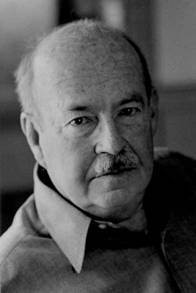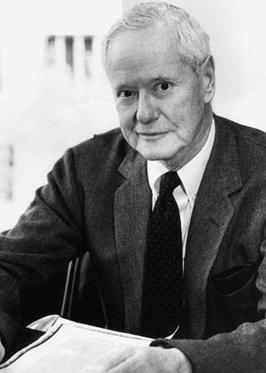Related Research Articles

Talcott Parsons was an American sociologist of the classical tradition, best known for his social action theory and structural functionalism. Parsons is considered one of the most influential figures in sociology in the 20th century. After earning a PhD in economics, he served on the faculty at Harvard University from 1927 to 1973. In 1930, he was among the first professors in its new sociology department. Later, he was instrumental in the establishment of the Department of Social Relations at Harvard.

Robert King Merton was an American sociologist who is considered a founding father of modern sociology, and a major contributor to the subfield of criminology. He served as the 47th president of the American Sociological Association. He spent most of his career teaching at Columbia University, where he attained the rank of University Professor. In 1994 he was awarded the National Medal of Science for his contributions to the field and for having founded the sociology of science.

Structural functionalism, or simply functionalism, is "a framework for building theory that sees society as a complex system whose parts work together to promote solidarity and stability".

In the social sciences, social structure is the aggregate of patterned social arrangements in society that are both emergent from and determinant of the actions of individuals. Likewise, society is believed to be grouped into structurally related groups or sets of roles, with different functions, meanings, or purposes. Examples of social structure include family, religion, law, economy, and class. It contrasts with "social system", which refers to the parent structure in which these various structures are embedded. Thus, social structures significantly influence larger systems, such as economic systems, legal systems, political systems, cultural systems, etc. Social structure can also be said to be the framework upon which a society is established. It determines the norms and patterns of relations between the various institutions of the society.

A cultural system is the interaction of different elements in culture. While a cultural system is very different from a social system, sometimes both systems together are referred to as the sociocultural system.

Business process modeling (BPM) in business process management and systems engineering is the activity of representing processes of an enterprise, so that the current business processes may be analyzed, improved, and automated. BPM is typically performed by business analysts, who provide expertise in the modeling discipline; by subject matter experts, who have specialized knowledge of the processes being modeled; or more commonly by a team comprising both. Alternatively, the process model can be derived directly from events' logs using process mining tools.
The AGIL paradigm is a sociological scheme created by American sociologist Talcott Parsons in the 1950s. It is a systematic depiction of certain societal functions, which every society must meet to be able to maintain stable social life. The AGIL paradigm is part of Parsons's larger action theory, outlined in his notable book The Structure of Social Action, in The Social System and in later works, which aims to construct a unified map of all action systems, and ultimately "living systems". Indeed, the actual AGIL system only appeared in its first elaborate form in 1956, and Parsons extended the system in various layers of complexity during the rest of his intellectual life. Towards the end of his life, he added a new dimension to the action system, which he called the paradigm of the human condition; within that paradigm, the action system occupied the integral dimension.
In 1976, Sister Callista Roy developed the Adaptation Model of Nursing, a prominent nursing theory. Nursing theories frame, explain or define the practice of nursing. Roy's model sees the individual as a set of interrelated systems. The individual strives to maintain a balance between these systems and the outside world, but there is no absolute level of balance. Individuals strive to live within a unique band in which he or she can cope adequately.
"Instrumental" and "value-rational action" are terms scholars use to identify two kinds of behavior that humans can engage in. Scholars call using means that "work" as tools, instrumental action, and pursuing ends that are "right" as legitimate ends, value-rational action.

Cultural reproduction, a concept first developed by French sociologist and cultural theorist Pierre Bourdieu, is the mechanisms by which existing cultural forms, values, practices, and shared understandings are transmitted from generation to generation, thereby sustaining the continuity of cultural experience across time. In other words, reproduction, as it is applied to culture, is the process by which aspects of culture are passed on from person to person or from society to society.
Principles of intelligent urbanism (PIU) is a theory of urban planning composed of a set of ten axioms intended to guide the formulation of city plans and urban designs. They are intended to reconcile and integrate diverse urban planning and management concerns. These axioms include environmental sustainability, heritage conservation, appropriate technology, infrastructure-efficiency, placemaking, social access, transit-oriented development, regional integration, human scale, and institutional integrity. The term was coined by Prof. Christopher Charles Benninger.
In system theory. "differentiation" is the increase of subsystems in a modern society to increase the complexity of a society. Each subsystem can make different connections with other subsystems, and this leads to more variation within the system in order to respond to variation in the environment.
Integrative communication theory is a theory of cross-cultural adaptation proposed by Young Yun Kim. The first widely published version of Kim's theory is found in the last three chapters of a textbook authored by William Gudykunst with Young Yun Kim as second author. See acculturation and assimilation.
In information systems, applications architecture or application architecture is one of several architecture domains that form the pillars of an enterprise architecture (EA).

In sociology, action theory is the theory of social action presented by the American theorist Talcott Parsons.

Government of the Republic of South Africa and Others v Grootboom and Others is an important case in South African law, heard in the Constitutional Court on 11 May 2000, with judgment handed down on 4 October.

American anthropology has culture as its central and unifying concept. This most commonly refers to the universal human capacity to classify and encode human experiences symbolically, and to communicate symbolically encoded experiences socially. American anthropology is organized into four fields, each of which plays an important role in research on culture:
- biological anthropology
- linguistic anthropology
- cultural anthropology
- archaeology

Climate resilience is defined as the "capacity of social, economic and ecosystems to cope with a hazardous event or trend or disturbance". This is done by "responding or reorganising in ways that maintain their essential function, identity and structure while also maintaining the capacity for adaptation, learning and transformation". The key focus of increasing climate resilience is to reduce the climate vulnerability that communities, states, and countries currently have with regards to the many effects of climate change. Currently, efforts to build climate resilience encompass social, economic, technological, and political strategies that are being implemented at all scales of society. From local community action to global treaties, addressing climate resilience is becoming a priority, although it could be argued that a significant amount of the theory has yet to be translated into practice. Despite this, there is a robust and ever-growing movement fueled by local and national bodies alike geared towards building and improving climate resilience.
The Papua New Guinea Greens Party or PNG Greens are a minor political party in Papua New Guinea. Founded in 2001, the party took part in the 2002, 2007, 2012 and 2017 general elections, without winning a seat. They are a member of the Global Greens and of the Asia Pacific Greens Federation.
In Switzerland a distinction is made between Social assistance in the broader sense and social assistance in the narrower sense.
References
- ↑ Talcott Parsons, Bryan S. Turner. The Social System page 26-27. Routledge & Keagan Paul Ltd. 1951